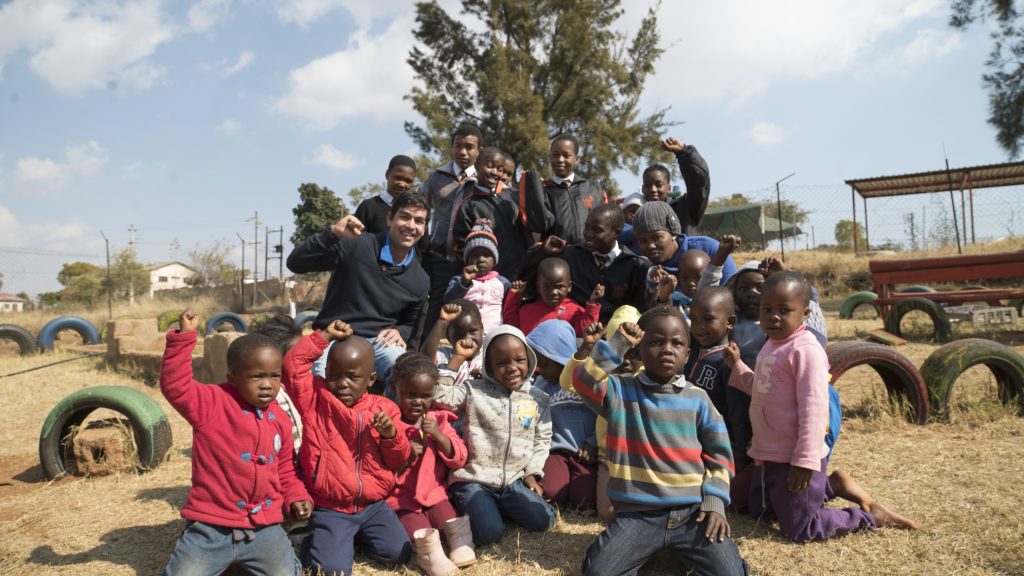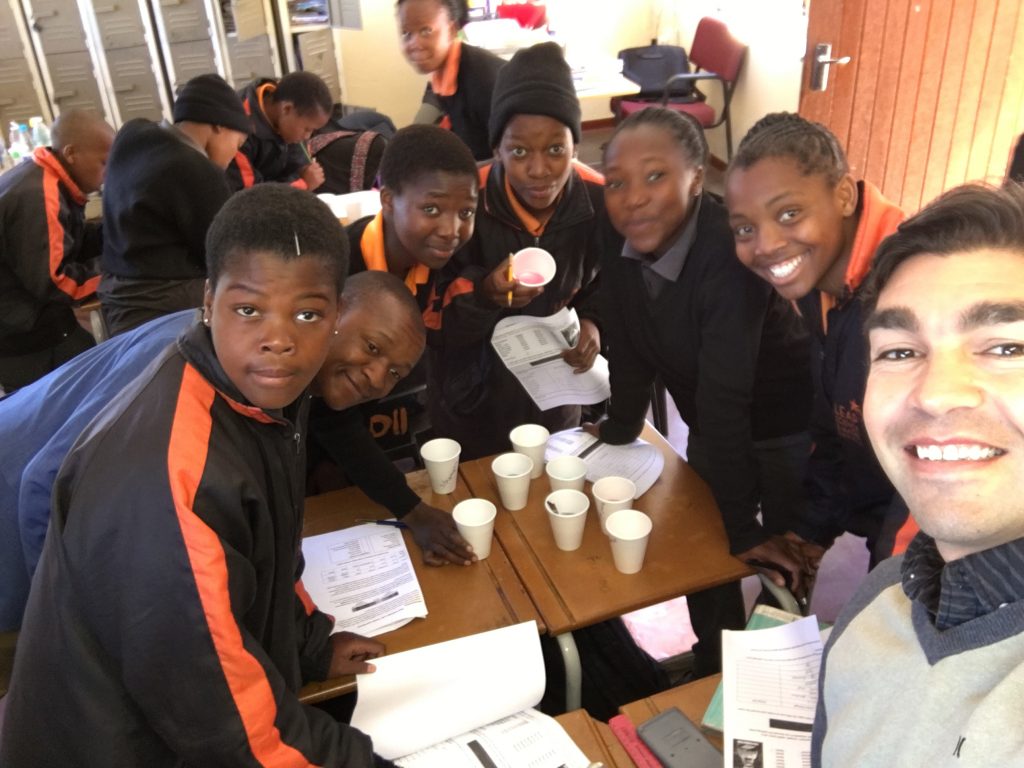For the last several weeks, our 2016 Teaching Fellows have been busy presenting workshops at our Axis Summit, and completing teaching residencies at our partner schools across South Africa. Below are excerpts from their reflections on this personal and professional journey.
“Here, instead of shunning those who do not have their own space, shared spaces often become collectives for taking care of each other.”
In Langa, one thing became very clear to me—in America, we generally think that privacy and dignity are synonymous, or at least very closely connected. One must have their own room to do certain things in private; we believe having your own space is a sign of adulthood; we often believe a personal problem is best dealt with by including as few people as possible; we value space and personal ownership. However, in South Africa, especially in the townships, I’ve observed that dignity is not always tied to space or privacy. Here, instead of shunning those who do not have their own space, shared spaced often become collectives for taking care of each other. If one person is dealing with an issue that under western standards is very private, here it is often dealt with as a community—even in schools…I appreciate getting this perspective, from both a personal and educational standpoint.
-Lucy Hilarides
“The Life Orientation experience at LEAP can both be emotionally heart-wrenching, as well as exuberant and celebratory.”
I think the most important subject for me so far has been the Life Orientation class at LEAP. The students go to the hut in the center of the campus where they have a brief meditation, then play a warm up game that leads into sharing of personal struggles and triumphs. Students are encouraged to dig deep within themselves, be totally honest, celebrate the successes and seek solutions to the challenges. The L.O. experience at LEAP can be both emotionally heart-wrenching, as well as exuberant and celebratory. I watched the students grow and mature as they learn to face real problems while preparing to face the real world!
-Clifford Sykes
“This is exactly my purpose: I need to know myself before I can hope to help others.”
I was actually very surprised with how much I was asked to share my viewpoints about my journey as an educator and myself personally. I am quite used to reflecting at my school and with my staff but this was different. I was really forced to be honest with myself on who I am as an educator, as an American, and more importantly as a person… Later I realized that this is exactly my purpose: I need to know myself before I can hope to help others. I feel honored and lucky to be in a profession where personal growth is essential to be able to grow as a professional. I’m grateful to be in a profession where everyone has the same goal and is encouraged to share ideas, best practices, and our passions.
Over all of my conversations, I felt a real parallel in the education systems in South Africa and the US: many of the decisions made at a macro and micro scale in education came from the top down. They came from bureaucrats, business people, politicians, and very rarely anyone who has actually stepped foot in a classroom as an actual educator. This made me realize that, in our global community, more teachers need to be stepping up, not only in their schools, but in higher levels as well. When we teachers push ourselves to continue growing as professionals, and when we take responsibility for the problems in our systems, only then will we create education as a driving force for liberation. Only then will our planet be in control of thinkers and problem-solvers instead of power-hungry politicians.
This experience made me set my intention to continue to push myself as a professional educator and to eventually, by the year 2035, bring myself to a higher decision-making position and use my experience as an educator to enact positive and equitable change in education.
-Chris Olivias
“It is easy for Americans to try to “save” African schools when in reality, many of our own schools need desperate help.”
The week of orientation itself challenged me as a person, not just as a teacher. We talked about why we where here and we talked about why we taught. We were challenged to really figure out our “why’s,” because, in the end, you can’t move forward if you can’t answer your why…
…The moments that shine, the pieces of my day that are substantial and make this whole experience worth it are my times with students. It’s the crazy questions from students about Hollywood, and celebrities, and life in America and yes, unfortunately, Donald Trump. It’s the smiles and shift from “yes ma’am” to “Ms. Elizabeth” to “Ms. Lizzy”. They are the students beginning to feel comfortable enough to have tough conversations like “Would my life have been better in America?” to being able to laugh about the funny food we eat at lunch (they were not a fan of Lucy’s quinoa) or mimicking our funny accent.
Yet still, this experience has left me with more questions than answers. How can we continue our connection? And how can we use our time here to hold a mirror to our own education system and inequalities in the States? Many times people have pointed out that it is easy for Americans to try to “save” African schools when in reality, many of our own schools need desperate help. So what are the next steps that are effective right now and effective for the longterm?
…While we are continued to be left with challenging questions, I have met so many people who are willing to engage in hard conversations that I have faith we can come up with some solutions. They may not be immediate but they have started to form.
-Elizabeth Colen


